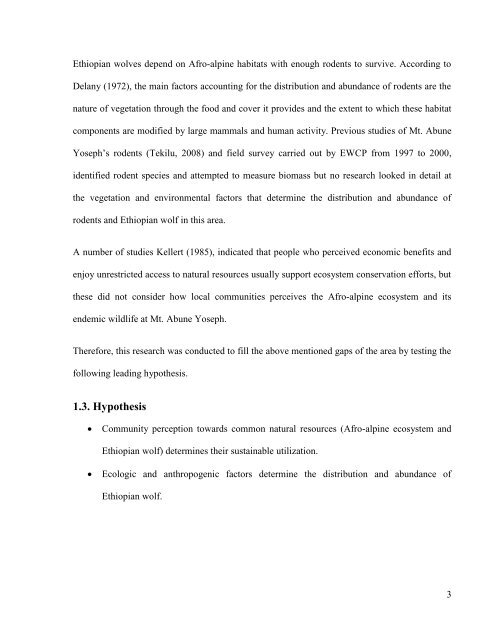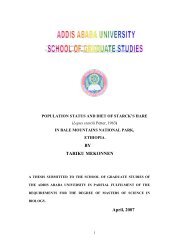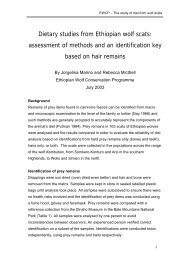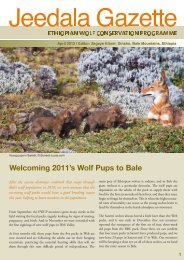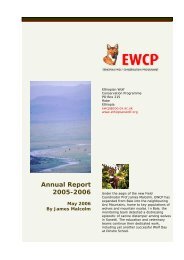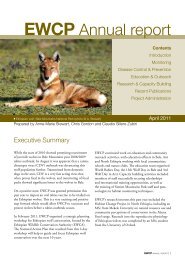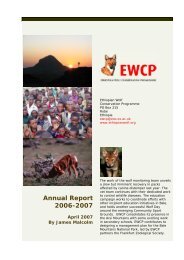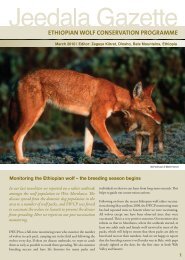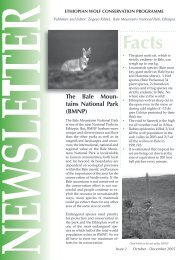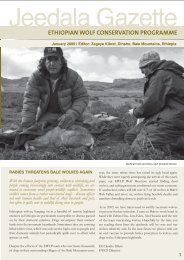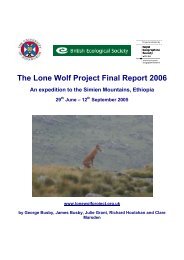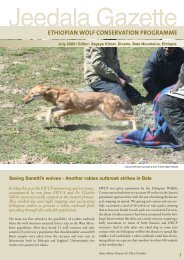Girma-Eshete-Jenbere-thesis - Ethiopian Wolf Conservation ...
Girma-Eshete-Jenbere-thesis - Ethiopian Wolf Conservation ...
Girma-Eshete-Jenbere-thesis - Ethiopian Wolf Conservation ...
Create successful ePaper yourself
Turn your PDF publications into a flip-book with our unique Google optimized e-Paper software.
<strong>Ethiopian</strong> wolves depend on Afro-alpine habitats with enough rodents to survive. According to<br />
Delany (1972), the main factors accounting for the distribution and abundance of rodents are the<br />
nature of vegetation through the food and cover it provides and the extent to which these habitat<br />
components are modified by large mammals and human activity. Previous studies of Mt. Abune<br />
Yoseph‟s rodents (Tekilu, 2008) and field survey carried out by EWCP from 1997 to 2000,<br />
identified rodent species and attempted to measure biomass but no research looked in detail at<br />
the vegetation and environmental factors that determine the distribution and abundance of<br />
rodents and <strong>Ethiopian</strong> wolf in this area.<br />
A number of studies Kellert (1985), indicated that people who perceived economic benefits and<br />
enjoy unrestricted access to natural resources usually support ecosystem conservation efforts, but<br />
these did not consider how local communities perceives the Afro-alpine ecosystem and its<br />
endemic wildlife at Mt. Abune Yoseph.<br />
Therefore, this research was conducted to fill the above mentioned gaps of the area by testing the<br />
following leading hypo<strong>thesis</strong>.<br />
1.3. Hypo<strong>thesis</strong><br />
<br />
Community perception towards common natural resources (Afro-alpine ecosystem and<br />
<strong>Ethiopian</strong> wolf) determines their sustainable utilization.<br />
<br />
Ecologic and anthropogenic factors determine the distribution and abundance of<br />
<strong>Ethiopian</strong> wolf.<br />
3


